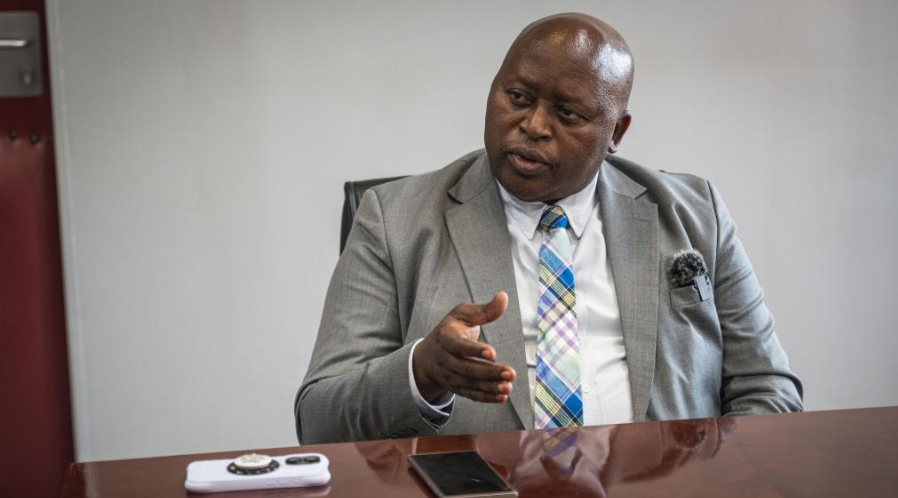Lesotho’s Minister of Trade, Industry, Business Development and Tourism, Mokhethi Shelile, has sharply criticised U.S. tariff policies, calling them unfair to developing countries and damaging to the southern African nation’s economy. Speaking on the impact of the measures, Shelile said the tariffs have dealt a severe blow to Lesotho’s textile industry the backbone of its manufacturing sector and a major source of formal employment.
Lesotho, classified by the United Nations as one of the world’s least developed countries, is among Africa’s largest garment exporters to the United States. The textile industry employs around 40,000 workers, according to the International Organization of Employers. However, recent U.S. tariff hikes have triggered layoffs, with ripple effects threatening related sectors such as transportation and real estate. Last month, the country declared a national state of disaster over rising youth unemployment and job losses, with the youth jobless rate now standing at 48 percent.
Shelile criticised Washington for focusing solely on goods trade while overlooking the U.S.’s vast exports in services, such as software licensing. He noted that Lesotho pays millions of dollars annually for Microsoft licenses, yet such payments do not feature in trade balance considerations. He also pointed out that some U.S. goods arrive via South Africa and are omitted from Lesotho’s official import statistics, distorting the trade picture.
The minister warned that the U.S.’s unilateral imposition of discriminatory tariffs disrupts global supply chains and compels African nations to negotiate as blocs. Washington’s insistence on engaging sub-Saharan Africa excluding South Africa as a single negotiating unit means Lesotho can only participate indirectly in current talks.
To counter the fallout, Lesotho is pursuing an aggressive export diversification strategy. This includes strengthening economic ties with South Africa, leveraging opportunities within the African Continental Free Trade Area, and seeking deeper trade and investment relationships with China, Nigeria, the European Union, and other partners.
Shelile confirmed that Lesotho has formally requested a waiver or reduction of U.S. tariffs, though the prospects remain uncertain. “We are making every effort to safeguard our national interests,” he said, expressing optimism that through regional cooperation and market diversification, Lesotho’s economy will be on the path to recovery by next year.

